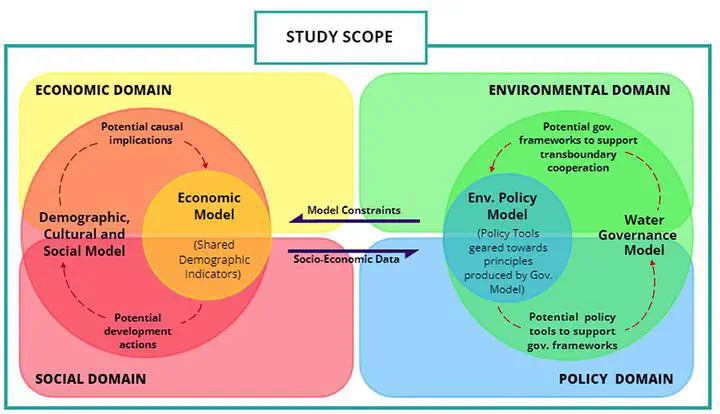Sustainable WEF Nexus Management - A Conceptual Framework to Integrate Models of Social, Economic, Policy, and Institutional Developments

Abstract
Rapid population growth along with increased rates of economic growth around the globe are placing valuable natural resources, water in particular, under unprecedented stress; this in turn drives the pursuit of innovative tools to support integrated Water-Energy-Food (WEF) nexus management. This paper presents a framework for the integrated management of the WEF nexus, which brings together four separate models that address the less well-examined socio-anthropological aspects of the nexus. The proposed framework provides insight into the human element as part of the wider ecosystem in terms of socio-cultural and economic activities, the laws and policies that govern these activities, as well as their potential socio-economic impacts and consequences. This paper outlines each individual model, before going on to present a conceptual framework for the integration of the various models for the purpose of supporting more robust decision-making. The framework, which is grounded in systems thinking, adopts the principles of sustainable development as structural foci in order to position the various models in relation to one another; harmonizing their inputs as well as outputs.